Premium Only Content
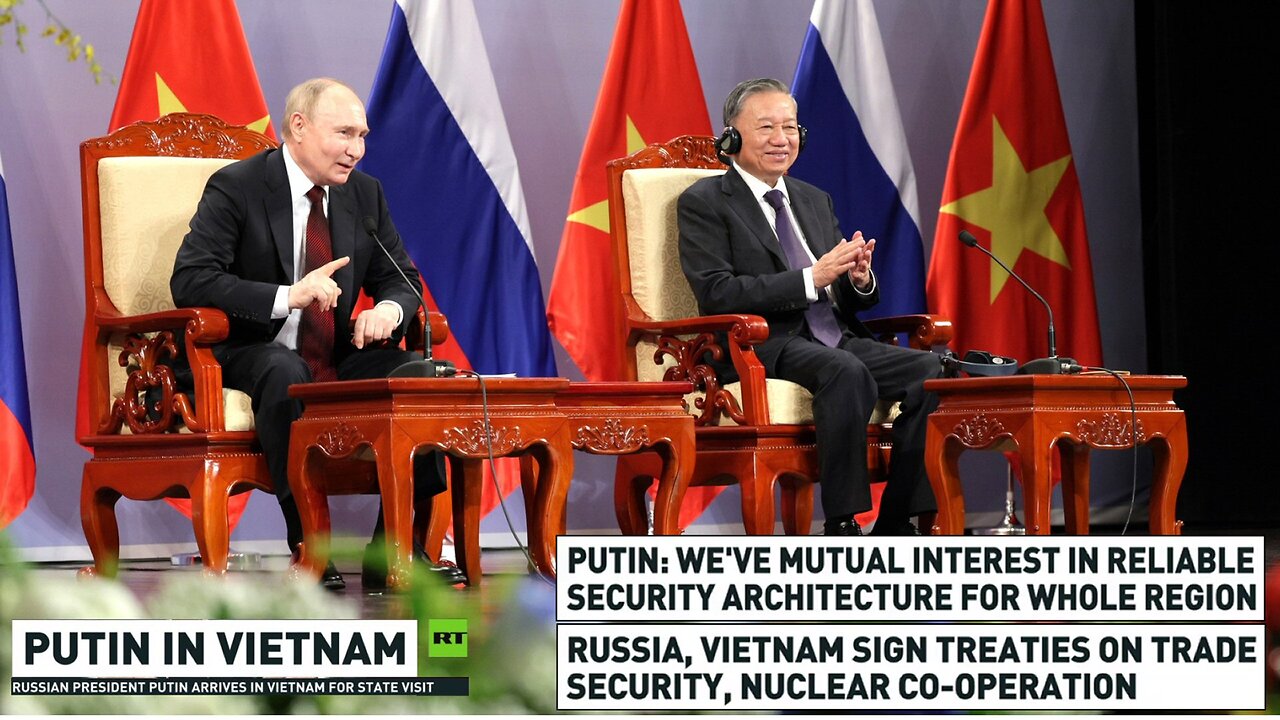
RT News - June 20 2024 (late) President Putin in Vietnam
Russia and Vietnam are expanding their comprehensive strategic relationship with security and nuclear energy agreements. Donald Courter reports on the day. Please see last entry below for the day's itinerary, what happened where. The citizens of Vietnam seem to like the Russians. Everyone loves the Aurus limo (and me).
----
Bilateral relations are likely to be supercharged after this visit, according to a former Defence Minister Nguyen Huy Hieu.
----
After yesterday's trip to North Korea, the presidents exchanged gifts. Pres. Kim Jong-Un got the Aurus ! Pres. Putin got some extremely rare dogs and other rare trinkets - see below. Some of the details of the treaty they signed are explained. This followed from Pres. Putin's lengthy press conference where he explained that it was Russia's right to mirror the west's arming of other countries which threaten Russia. Prof. Benjamin Chiao discusses with Nikki. He says that the conflict in Ukraine is entirely the fault of NATO and could have been prevented, had the USA .gov instructed them to cease the expansions.
----
Israel/Gaza Updates: In Rafah, IDF tanks and drones are pushing forward and causing a number of casualties and leaving some civilians dead. Searches continue for survivors under the rubble. More than 37,390 Gaza civilians have died since October 7th 2023, most of them women and children. Nikki presents the shocking statistics and state of play, using tapes/footage. Locals describe the terror and horror of being there. Nebal Farsakh (Palestinian Red Crescent Soc. representative) tells of the awful conditions/prospects which face the Gazans.
----
Despite warnings from the UN, Israel continues with it's deadly activities against the citizens of Gaza. An IDF spokesman (Daniel Hagari) says "Israel can't make Hamas disappear". Maria Finoshina reports on Israel's deception and says despite the rhetoric, none of the goals of Israel has been achieved. Protests continue to oust Pres. Netanyahu but he won't budge.
----
Canada has labelled Iran's Revolutionary Guard as a terrorist entity. Nasser Kanani calls this a hostile move by Canada and outside of the (international) law and is irresponsible. Melanie Joly (Canada FM) said "there's a risk of arbitrary detention" Yusef Jalali reports. Foad Izadi (political comms professor at University of Tehran) makes comments, calls hypocrisy (me, I think he's being very restrained !! )
----
Pelosi's visit to the Dalai Lama: She was insulting and nasty without any need for it. Runjhun Sharma reports.
----
Really REALLY really bad storms have been pelting Moscow and there have been fatalities and many injuries.
----
Short take: Russia and Vietnam sign a raft of cooperation agreements across multiple fields including security, as President Vladimir Putin pays a state visit the country. A striking statement from the IDF spokesperson seemingly contradicting Prime Minister Netanyahu’s decisive rhetoric on defeating Hamas. Tehran lashes out at Canada for branding the Iranian Guards corps as a terrorist entity, with the Iranian foreign ministry calling the move illegal. Former US House speaker Nancy Pelosi takes aim at the Chinese president as Beijing slams Washington’s delegation for meeting with the Dalai Lama, who is considered a separatist by China.
========================================
Western property could be seized – Moscow 20 Jun, 2024 09:46
Russia retains a “wide arsenal of countermeasures” in the event that its assets are seized in the West, the Foreign Ministry has warned.
Russia has a “wide arsenal” of political and economic countermeasures to respond to the potential confiscation of its sovereign assets, including a tit-for-tat seizure of Western property in Russia, Foreign Ministry spokeswoman Maria Zakharova has said.
The leaders of the Group of Seven (G7) nations agreed at last week’s summit in Apulia, Italy, to use interest from frozen Russian assets to secure a $50 billion loan for Kiev.
Zakharova pointed out that Russia has a “significant” amount of Western funds and property under its jurisdiction.
“All of it may be subject to Russian retaliatory policy and retaliatory actions. The arsenal of political and economic countermeasures is wide,” she told reporters at a regular press briefing on Wednesday.
Russia, however, will not disclose the nature of the retaliatory actions, Zakharova added.
G7 countries have approved in principle a US plan to provide Ukraine with a $50 billion loan issued against frozen Russian assets, to help Kiev buy weapons and rebuild damaged infrastructure.
The idea is to use nearly $300 billion in Russian sovereign funds frozen in the West in the wake of the Ukraine conflict in 2022, as the basis for the loan. G7 countries would use profits from the assets to cover the debt interest.
Most of the frozen assets are being held in the EU. US Treasury Secretary Janet Yellen said recently that the profits earned from the immobilized Russian assets amounts to around $3-$5 billion per year.
The G7 intends to disburse the funds through multiple channels, directing them to Ukraine’s military, general budget, and reconstruction needs.
Disagreements, however, remain among the US and its allies as to who will carry the loan risks if Western governments lose control over the Russian assets.
Moscow has repeatedly said it will treat any attempt to tap into them as theft, and will retaliate.
=====================================
UK Labour Party ditches candidate for sharing RT content in 2018 20 Jun, 2024 11:34
The shadow chancellor says a party member was kicked out for “not sharing our values”.
The UK Labour Party has suspended one of its parliamentary candidates just two weeks before the general election, after senior members were made aware of his apparent sharing of RT content, six years ago, on his social media.
Andy Brown is campaigning to represent the Aberdeenshire North and Moray East constituency in northeast Scotland. The party’s decision to remove him was reported on Tuesday by The Press and Journal, a local newspaper, and has since become a national news story.
The posts that got Brown in trouble relate to the 2018 Salisbury poisoning case, which the British government claimed to be a Russian assassination attempt on Sergey Skripal, a defector spy. The politician reportedly shared a link to an RT article, which questioned London’s narrative, as well as a social media post suggesting that then-prime minister Theresa May was hiding vital information about the incident.
Brown has claimed in an interview with the BBC that he did not share the posts, and that his account “may have been corrupted at some point.” He rejected the suggestion that he may have forgotten sharing them.
Labour Party bosses were also “spooked” by another post apparently shared by Brown, which questioned claims that anti-Semitism was widespread in the Labour Party, the Scottish newspaper said. The allegation was instrumental in the ouster of Jeremy Corbyn, a vocal pro-Palestinian figure, as Labour party leader. His whip in parliament was later removed by his successor, Keir Starmer, meaning effective expulsion from the party.
Commenting on the Andy Brown case, Labour’s shadow chancellor Rachel Reeves told Sky News on Wednesday: “I hadn’t heard of this guy until this morning, and I’m very, very pleased that I will hopefully not have to hear of him again because he’s been suspended as a Labour candidate.” She added that unlike Corbyn, Starmer takes “swift action when people misbehave”.
“People who do not share our values in the changed Labour Party get kicked out,” Reeves stressed.
Although he has been deselected, Brown can still stand as a candidate for the election on July 4. Paper ballots will still carry his original description and a Labour logo, according to the British press. If elected, he will be an independent MP – not unlike Corbyn, who is running to represent the constituency of Islington North.
The UK banned RT from broadcasting in March 2022, after the Ukraine conflict escalated into open hostilities.
=================================
Russia fears a NATO attack. Here’s why. 20 Jun, 2024 14:45
As its Ukrainian proxy faces defeat, the US-led bloc is becoming increasingly reckless. Where will this hubris lead us? (Feature ****By Igor Istomin, acting head of the Department of Applied Analysis of International Problems at MGIMO University.****)
The possibility of a trans-European war is closer today than at any time since the mid-20th century. Western analysts discuss various scenarios of a possible conflict, while officials openly speculate about its likelihood and even discuss specific time horizons.
In a recent speech, Russian President Vladimir Putin declared that the actions of Western governments had brought the world “to the point of no return.” At the same time, domestic debate in Russia is dominated by the belief that the US and its allies recognize the catastrophic risks of a direct military confrontation with Moscow and will seek to avoid it for reasons of self-preservation.
Such judgments are based on the assumption that the West, despite its aggressiveness and arrogance, is guided in its policies by a rational balance of benefits and costs based on the existing balance of power. Past experience, however, does not convince us that the US-led bloc is capable of pursuing a balanced, calculated course.
Throughout the 2000s and 2010s, the West repeatedly became involved in military adventures from which it then painfully sought a way out. One need only recall the examples of the interventions in Afghanistan, Iraq, and Libya. Of course, in all these cases, the risks were significantly lower than in the case of a hypothetical war with Russia. But the stakes were also significantly lower.
A recent admission by US President Joe Biden is telling: “If we ever let Ukraine fail, mark my words, you will see Poland go, and you will see all these countries along Russia’s actual border negotiate on their own.” Thus, the good old ‘domino theory’ is back in the minds of Western strategists.
The divided consciousness of the West
The growing bitterness of Western countries towards Russia is consistent with the way in which they look at armed conflicts in terms of the logic of preventive war. Rather than linking interstate clashes to aggressive opportunism, this model sees escalation as a product of fears about the future. The belief that their situation will deteriorate over time leads states to take increasingly adventurous steps, up to and including the use of force.
Throughout history, major wars have usually been the product of this preemptive logic – the desire to strike before an expected weakening. For example, the collapse of the continental blockade system led Napoleon to attack Russia. German fears about the prospects for modernization of the Russian army were the trigger for the First World War.
A similar dynamic can be seen today in the policy of the West, which has invested considerable resources in confronting Russia.
The fact that Moscow doesn’t countenance losing in any way, but, on the contrary, is gradually moving towards achieving its goals, can only lead to frustration on the part of the US and its allies. This does not lead to reconciliation, but to the search for more effective means to hinder Russia.
Having failed in its plans to destroy the Russian economy with restrictive measures and to inflict a strategic defeat on Moscow at the hands of Kiev, the West is moving ever closer to the brink of direct military confrontation. At the same time, it is becoming increasingly insensitive to the possible consequences of such a scenario. Like casino players, the US and its allies are raising the stakes with each successive bet.
The growing adventurism is clearly visible in the debate over the deployment of Western troops in Ukraine. Moreover, not only hysterical Western European leaders, but also seemingly more responsible American generals have begun to speak out on the issue. For example, the head of the US Joint Chiefs of Staff, Charles Brown, has concluded that the deployment of NATO troops to the country is inevitable.
The West’s willingness to take risks is reinforced by its contradictory, if not schizophrenic, view of Russia. Public figures never tire of claiming that Moscow’s potential was greatly overestimated in the past and has been further weakened by the Ukraine operation. At the same time, without being aware of the dissonance, they justify the build-up of their own armed forces on the grounds of an increased Russian threat. An Irish writer once labelled this sort of thinking as “Russophrenia.”
The inconsistency is also evident in the portrayal of Russia as an insatiable expansionist intent on invading its neighbours, combined with a belief in its reverence for Article 5 of the Washington Treaty, which guarantees that NATO members will provide mutual assistance in the event of an attack on one of them.
The portrayal of Russia as a ‘paper tiger’ – an aggressive but weak actor – lays the groundwork for pre-emptive escalations to reverse the trends of confrontation unfavorable to the West. And they can be carried out not only in Ukraine.
The idea of restricting Moscow’s access to the Baltic Sea, which ignores the inevitable response to threats to Kaliningrad, is evidence of this, and is regularly introduced into Western discussions.
Quo Vadis?
So far, the idea of an armed attack on Russia has not been explicitly voiced by Western politicians. At present, they are talking about raising the stakes in the expectation that Moscow will not dare to respond. Moreover, the thesis that NATO and its member states do not want a direct military confrontation continues to be voiced. These assurances do not remove two kinds of danger.
First, the West can play with the reliability of nuclear deterrence and create such a provocation that Moscow will be forced to defend its vital interests with all available means. The aforementioned threats to close the Baltic Sea promise just such a flirtation.
Second, the established trend of increasing adventurism holds out the prospect of further policy shifts from the US and its allies. The logic of confrontation tends to raise the stakes, not least because of the accumulation of costs already incurred. As a result, the means available are beginning to dictate the objectives pursued.
Another factor increasing the risk of confrontation is the collective nature of the West. Domestic debates tend to emphasise the unequal nature of relations in NATO due to Washington’s clear dominance. Meanwhile, it is the vassal status of European states that increases their interest in escalation.
The prospect that Washington, preoccupied with competing with China, will lose interest in them and refocus on Asian affairs is a constant fear of its transatlantic allies. The embodiment of this dread is the figure of Donald Trump, but in European capitals there is a fear that this scenario will come to pass regardless of the personality of any particular leader.
US allies believe that time is working against them. Accordingly, the confrontation with Russia acquires an instrumental function, helping to justify keeping Washington’s attention on the European agenda. The debate in the US Congress over funding for Kiev in early 2024 has already become a wake-up call, demonstrating that the US is immersed in its own affairs.
Guided by the logic of anticipation, European NATO members may conclude that provoking a clash now, while the United States remains engaged in the conflict in Ukraine and containing Russia, is preferable to the prospect of bearing the burden of confronting Moscow alone in the future – a scenario they do not rule out.
Not surprisingly, the most irresponsible and radical proposals – such as sending troops to Ukraine or extending NATO guarantees to territory controlled by Kiev – come from Western European politicians. The internal dynamics within the West encourage competition for the status of the most intransigent fighter against Russia.
From plans to practice
In practice, NATO members are actively preparing for a military confrontation with Moscow. The bloc’s new force model, endorsed at the Madrid Summit in 2022, and the regional plans drawn up on its basis, envisage the deployment of a significant force of 300,000 troops within 30 days, in addition to those already stationed on Russia’s borders.
This is based on the active development and modernization of contingents from Central and Eastern European countries. Poland, which claims the same status as NATO’s main bastion that the Bundeswehr enjoyed in the second half of the 20th century, is particularly noteworthy in this respect. The increase to 300,000 troops is intended to make its armed forces the bloc’s largest land army among European member states.
NATO members are openly practising combat scenarios in potential theatres in Eastern and Northern Europe. Much emphasis is being placed on learning lessons from the armed struggle in Ukraine. To this end, a special center is being set up in Bydgoszcz, Poland, to ensure a regular exchange of experience between Western and Ukrainian military personnel.
The weak link in the Western effort has long been the limited capabilities of its military industry. Nevertheless, NATO members are paying increasing attention to overcoming this problem. It would be foolhardy to expect that they will not be able to increase production over time, including by increasing Western European firms’ links with the US military-industrial complex.
Describing the interim results of Western efforts, experts at the influential Washington-based Centre for Strategic and International Studies concluded in a recent report that NATO is ready for future wars. Such a resounding conclusion was accompanied by the clarification that the bloc still needs to work to prepare for a protracted confrontation that could lead to a clash with Russia.
Such contradictory expert conclusions are clearly dictated by political expediency – the desire to confirm the correctness of the chosen course of deterring Moscow, but at the same time the need to mobilize NATO member states to further increase efforts in the military sphere. They once again raise the stakes.
Finding the ‘golden mean’
In the case of the question posed in the title, analysis shows that the answer is likely to be positive. Russia faces the difficult task of containing escalation in a context of low receptivity to Western signals. Attempts to convey the seriousness of the situation are either dismissed out of hand or interpreted as manifestations of Russian aggressiveness.
In the face of such indoctrination, there is a danger that we ourselves will slip into a similar exaggeration, trying to force the enemy to abandon its adventurous line with even riskier demonstrations of resolve. So far, the Russian leadership has managed to resist these temptations.
Undoubtedly, Western attempts to raise the stakes must be responded to. At the same time, it makes sense to focus the damage on the NATO member states themselves, not just their proxies (the focus should be on the notorious “decision centers”). Statements about the possible transfer of long-range weapons to US adversaries and the visit of Russian ships to Cuba are logical steps in this direction.
Perhaps the range of responses could also include the shooting down of drones carrying out reconnaissance for Ukraine over the Black Sea. This would also allow for a total ban on their flights in the adjacent waters. Russian deterrence could also be complemented by maneuvers in the Baltic, Mediterranean or North Atlantic with other states that are considered to be Western adversaries.
The expectations from use of deterrence should be weighed against historical experience, which shows that the response to such actions is more often to harden the adversary than to encourage them to make concessions. In particular, this calls into question the validity of sometimes heard suggestions of nuclear strikes for demonstration purposes. Such actions are more likely to have the opposite effect to that envisaged by their authors, i.e. to bring direct military confrontation with NATO closer rather than further away.
This article was first published by the Valdai Discussion Club, translated and edited by the RT team.
=========================================
Moscow confirms attacks on Ukraine’s energy system 20 Jun, 2024 13:36
The latest strikes were in retaliation for Kiev’s continued targeting of Russian infrastructure, the Defense Ministry has said.
The Russian Defense Ministry has acknowledged striking parts of Ukraine’s energy infrastructure overnight, saying the military used air-launched missiles and drones, which all reached their intended long-range targets.
The operation was ordered “in response to attempts by the Kiev regime to damage Russian energy sites,” and targeted Ukrainian locations “that are used for the production of arms and military equipment,” the ministry said in a regular update on Thursday.
Ukrenergo, the state-owned operator of the electric transmission system, has reported damage in several parts of the country, including Kiev Region, which supplies power to the capital. It claimed the Russian barrage was the seventh of its kind since March 22, and will result in further restrictions on consumption. Rolling blackouts are being imposed nationwide to address the growing shortage of generation capacity.
”To deal with the deficit in the energy system we resort to import and emergency aid from Europe,” the company said, adding that over the past 24 hours Ukraine received over 27,000 megawatt-hours from Romania, Slovakia, Poland, Hungary and Moldova.
Since January, Kiev has been trying to damage Russian oil refineries and storage facilities using long-range kamikaze drones. According to Russian President Vladimir Putin, Moscow decided to ramp up strikes against Ukrainian infrastructure in response to those attacks. Such operations began after the weather became warm enough for blackouts not to pose a significant humanitarian threat, according to the Russian leader.
Kiev’s latest drone raids took place overnight, according to the Russian Defense Ministry. Earlier on Thursday it reported intercepting unmanned aircraft over the Republic of Adygea, and the regions of Bryansk, Krasnodar, Rostov, Belgorod and Oryol.
Damage to oil facilities was caused by drones in Tambov Region and Adygea, while in Krasnodar Region a woman was killed, after a drone struck her home, according to regional officials.
=========================================
West has plan to replace Zelensky – Russian intelligence 20 Jun, 2024 09:58
The Ukrainian leader will be scapegoated for the country’s inevitable military defeat, the SVR agency predicts.
The US and its allies will sacrifice Vladimir Zelensky, who is entirely dependent on their support, without any qualms, the Russian foreign intelligence service (SVR) has claimed in a statement, according to TASS.
Moscow considers Zelensky to be a usurper, since his five-year presidential term expired in May. President Vladimir Putin has argued that, under the Ukrainian constitution, the parliament remains legitimate, and presidential authority should have passed to its speaker when Zelensky’s term ended. However, officials in Kiev have conspired to keep Zelensky in place.
“It is becoming increasingly evident that the White House will soon shut down ‘Project Zelensky’,” the SVR stated on Thursday.
It believes Zelensky will be used as a scapegoat “once Russia solidifies its successes on the battlefield, and exhausted and demoralized Ukrainian troops find themselves with no way out.”
Once Zelensky is of no use, “the White House will throw him on the trash heap of history with no second thought, and replace him with another Ukrainian politician whom it considers suitable to negotiate a peaceful resolution of the conflict with Russia.” Retired General Valery Zaluzhny, the former top commander of the armed forces, is a likely candidate, according to the SVR.
The Russian intelligence agency dismissed as “comical” Zelensky’s attempts to convince foreign audiences that a Ukrainian military victory over Russia was possible.
Putin’s analysis, which he outlined last week in a keynote speech on Russian foreign policy, is that Zelensky remains of use to foreign sponsors. He can issue and enforce several policies, which would be highly unpopular among Ukrainians but would otherwise help Kiev to prolong hostilities with Russia. He will then have to take the blame for those decisions, Putin predicted.
The president noted that any agreements signed by Zelensky with foreign nations after May 20, such as the recent bilateral ten-year security deal with the US, can be easily discarded by other parties, since he no longer has any legal authority to represent Ukraine.
========================================
Gifts exchanged by Putin and Kim revealed 20 Jun, 2024 07:41
Items exchanged between the two leaders during their meeting in Pyongyang on Wednesday included rare dogs and a Russian-made limousine.
North Korean leader Kim Jong-un presented Russian President Vladimir Putin with a pair of rare Korean dogs on Wednesday, the Korean Central News Agency (KCNA) has reported. The two heads of state exchanged various gifts during talks in Pyongyang.
The meeting marked the first time the Russian president had traveled to North Korea since 2000. The latest state visit featured negotiations on economic, security, and geopolitical issues, culminating in the signing of a Treaty on Comprehensive Strategic Partnership.
Led by the President, the Russian delegation was made up of various senior officials, including Foreign Minister Sergey Lavrov, Defense Minister Andrey Belousov, Kremlin spokesman Dmitry Peskov, and presidential foreign policy aide Yury Ushakov.
The KCNA reported on Thursday that “Kim Jong-un presented a pair of Phungsan, national dogs of the DPRK, to Putin as a gift in the garden of the Kumsusan State Guesthouse.”
The Phungsan breed is endemic to mountainous areas in the north of the Korean peninsula. They hail from wolves and boast a thick, frost-proof white coat. They are capable of taking on large animals, and have traditionally been used as hunting dogs in Korea.
On Wednesday, Russian presidential foreign policy aide Ushakov revealed that Moscow’s delegation had presented Kim with an ‘Aurus’ car.
The Russian-made family of vehicles features limousines for top-level officials. Putin and Kim shared a ride in one upon the Russian president’s arrival at Pyongyang airport earlier on Wednesday.
According to Ushakov, the Russian delegation also gifted Kim a naval dirk and a “very beautiful tea set.”
The presidential aide stopped short of sharing what Putin had received in exchange, simply noting that he had been given “nice gifts, too.”
“They are connected with depictions of our president,” he added, describing them as being “of quite a high artistic value, including busts.”
========================================
US to redirect air defense orders to Ukraine – White House 20 Jun, 2024 16:46
Countries waiting for Patriot and NASAMS systems have been put on hold until Kiev’s needs are satisfied
The US will prioritize deliveries of Patriot and NASAMS batteries to Ukraine over any pending orders from other countries, in an effort to shore up Kiev’s air defenses, the White House announced on Thursday.
White House National Security Communications Adviser John Kirby told reporters that Kiev is currently “in desperate need of additional air defence capabilities” as Russia continues to target Ukraine’s power grid ahead of the fall and winter.
At present, Kiev has at least four Patriot systems, provided by the US and Germany. Late last month, the Netherlands launched a joint initiative to deliver one more air defense battery to Ukraine, calling on several other nations to donate separate constituent parts. While Spain, Greece, Romania and Poland have Patriots at their disposal, they have so far refused to donate them to Kiev.
Ukraine’s Vladimir Zelensky has asked Western backers to deliver at least seven more Patriot units amid an intensified Russian bombardment of Ukrainian cities in recent months.
The Financial Times reported on Thursday that Ukraine’s demand for interceptor missiles would take precedence until the country “has enough to defend itself from Russia’s air attacks.” The original story suggested that all other orders – both for Patriot launchers and ammunition – would be halted. However, its authors later amended the article to say the restrictions would only affect missiles.
The newspaper noted that Poland, Romania and Germany all have open orders with American manufacturers for Patriot systems, with a separate outstanding contract for 1,000 missiles placed by a group of NATO member states back in January.
On Tuesday, Switzerland’s Blick newspaper reported that the US had delayed the scheduled delivery of Patriot interceptor missiles to the country, citing the Ukraine conflict as ‘force majeure’, which allows for the contract to be altered. The Swiss military later confirmed that the report was true.
Speaking at a joint press conference with Zelensky on the sidelines of the G7 summit in Italy last Thursday, President Biden said countries that are expecting US air defense systems would have to wait.
The US head of state explained that “everything we have is going to go to Ukraine until their needs are met.”
==============================================
French PM warns election result could undermine support for Ukraine 20 Jun, 2024 14:41
Gabriel Attal has claimed that the right-wing National Rally could make sweeping changes to the country’s foreign policy
French Prime Minister Gabriel Attal has warned that the right-wing National Rally party, a favourite in upcoming parliamentary elections, could make “very serious changes” to the country’s position on both domestic and international issues if it comes to power.
President Emmanuel Macron dissolved the French government and announced a snap election earlier this month following his party’s defeat in the European Parliament elections. France is set to go to the polls to choose a new National Assembly on June 30, with a second round scheduled for July 7.
Speaking on the BFM TV channel on Thursday, Attal expressed particular concern that victory for right-wing parties in the upcoming vote could lead to a potential “Frexit,” referring to Britain’s exit from the EU in 2020, and result in the”cessation of a significant part of assistance to Ukraine.” This, according to the prime minister, could increase the “risk of submission to Russia.”
Similar concerns have also been expressed by several other EU governments, according to a recent Bloomberg report. A number of European nations reportedly believe that Macron’s defeat could weaken France’s role as one of Kiev’s main backers, and could also affect plans to send military instructors to Ukraine.
Gilles Ivaldi, a political scientist at Sciences Po university, told the outlet that a National Rally prime minister would have a “totally antagonistic” position to Macron, whose presidency continues until 2027. This would affect issues such as Russia, Ukraine, European defense, and climate change, and would lead to a “weakening of Europe.”
However, National Rally Chairman Jordan Bardella has stated that, if he comes to power, he would continue to provide ammunition to Ukraine, but would not send any French military personnel to the conflict zone nor supply Kiev with long-range missiles.
“My position has not changed. It is to support Ukraine by providing equipment, ammunition, operational logistics support, and defense weapons so that Ukraine can defend itself,” Bardella said.
Meanwhile, Moscow has repeatedly condemned the West’s continued military aid to Kiev, and has warned against sending any NATO troops to the country, insisting that such a move would constitute the West’s direct involvement in the conflict, and that they would become legitimate targets for the Russian military.
===========================================
Pres. Putin's visit to Vietnam, the events of the day, as they happened.
20 June 2024
16:02 GMT
Vladimir Putin reiterated that in response to arms supplies to Ukraine, Russia has not ruled out supplying arms to other countries: “Let the West think about where it will end up later.”
14:21 GMT
Vladimir Putin raised a toast for stronger friendship between Russia and Vietnam, as well as peace and stability in Asia-Pacific region.
14:17 GMT
Vietnam President To Lam praised ‘stability and growth’ of ‘friend’ Russia.
“Russia reinforces its position as a great power”, he said.
13:54 GMT
Russian President Vladimir Putin invited Vietnam to think about cooperating with Russia in space exploration as he met with Vietnamese graduates of Russian and Soviet universities at the Hanoi Opera House.
“We must ensure the security of our countries. And this means we must think... about modern weapons, including those based on new physical principles. And this means that we must develop engineering, train specialists. You and I must think about the research in space… and not just near space, but deep space. We have many areas for joint work,” Putin said.
13:36 GMT
A memorandum on Russia’s project to build a Center for Nuclear Science and Technology in Vietnam, which was signed during Russian President Vladimir Putin’s visit to Hanoi, covers the next three years, Aleksey Likhachev, the head of Russia’s atomic energy agency Rosatom, has said.
“The document contains a clear schedule of activities for the development of the project for the period until 2027,” said Likhachev stated.
12:47 GMT
During his meeting with Vietnamese graduates of Russian and Soviet universities at the Hanoi Opera House, President Vladimir Putin addressed the issue of information security, saying that attempts by governments to reach out to younger generations should not be “boring” or “formal.”
“As soon as young people feel formalism, those efforts become meaningless, especially in the modern world, connected via the Internet and with free access to any information,” he explained.
According to Putin, there is no way to restrict the public's access to the massive flow of information available nowadays. “There is only one way to overcome the negative trends associated with this, namely, to be more convincing in the information field,” he said.
11:38 GMT
After visiting the Memorial to Fallen Heroes in Hanoi, Vladimir Putin travelled with his motorcade to the President Ho Chi Minh Mausoleum, where the Russian president took part in a wreath-laying ceremony at the final resting place of the Vietnamese revolutionary leader.
11:29 GMT
The key points from a joint statement by Russia and Vietnam, issued during Russian President Vladimir Putin’s visit to Hanoi:
▪️ Vietnam welcomes the re-election of Vladimir Putin in 2024 and recognises the support of the Russian population for his foreign policy;
▪️ Russia and Vietnam agree to strengthen bilateral interaction, and create new mechanisms for cooperation;
▪️ Moscow and Hanoi oppose the deployment of weapons in space;
▪️ Russia highly appreciates Vietnam’s balanced and objective stance on the Ukraine crisis;
▪️ Vietnam strongly condemns the terrorist attack on Crocus City Hall outside Moscow in March and expresses support for Russia’s fight against terrorism;
▪️ Russia and Vietnam call for the creation of an independent Palestinian state with East Jerusalem as its capital;
▪️ Moscow and Hanoi support strengthening the central role of the Association of South East Asian Nations (ASEAN) in the system of interstate relations in the Asia-Pacific region;
▪️ Russia and Vietnam are intensifying the activities of a high-level working group on priority investment projects;
▪️ The countries agree to speed up the implementation of a project to build a Center for Nuclear Science and Technology in Vietnam.
11:02 GMT
Russian President Vladimir Putin has laid a wreath at the Memorial to Fallen Heroes in Vietnam’s capital, Hanoi. The memorial was opened in 1994 to mark the 40th anniversary of the Vietnamese victory over the French colonialists.
10:47 GMT
The Financial Times has reported that by hosting Vladimir Putin, Xi Jinping, and Joe Biden in the space of less than a year, Vietnam has shown the ability of “balancing geopolitical rivalries with an élan that has eluded other countries.”
According to the FT, the visits by the leaders of Russia, China, and the US to the Southeast Asian country is a “triumph” of what it called Hanoi’s “bamboo diplomacy.” Vietnam has shown that it is “adept at attracting manufacturing investment from companies eager to diversify their supply chains is adroitly managing its foreign policy,” the paper claimed.
10:47 GMT
The Financial Times has reported that by hosting Vladimir Putin, Xi Jinping, and Joe Biden in the space of less than a year, Vietnam has shown the ability of “balancing geopolitical rivalries with an élan that has eluded other countries.”
According to the FT, the visits by the leaders of Russia, China, and the US to the Southeast Asian country is a “triumph” of what it called Hanoi’s “bamboo diplomacy.” Vietnam has shown that it is “adept at attracting manufacturing investment from companies eager to diversify their supply chains is adroitly managing its foreign policy,” the paper claimed.
10:01 GMT
Following his talks with Vietnamese President To Lam, Russian leader Vladimir Putin also held a meeting with the Southeast Asian country’s Prime Minister Pham Minh Chinh.
Despite the “difficulties” of the current situation on the global stage, Moscow is aiming to strengthen its “comprehensive strategic partnership” with Vietnam, Putin told the PM. “We will make every effort to make it work,” he added.
“Vietnam is one of our oldest friends and partners. This relationship of mutual trust and understanding has a long history… It withstood the test of time. The Soviet Union… gave support to the Vietnamese people in their heroic struggle against the French, and then the American invaders, and then it helped to build the Socialist Republic of Vietnam… It is important that in Vietnam you remember this,” the Russian leader said.
09:29 GMT
Russia is ready to provide Vietnam with assistance in boosting its naval forces, the head of the Federal Service for Military-Technical Cooperation (FSMTC), Dmitry Shugaev, has said.
“Vietnamese partners are interested in developing cooperation in the areas of aviation and shipbuilding. As a maritime power, they are naturally interested in strengthening their naval forces, and we will provide all possible assistance to them,” he said.
According to Shugaev, Russia’s military-technical ties with Vietnam already include “a wide range of activities.” He also expressed hope that President Vladimir Putin’s visit to Hanoi will contribute to a further strengthening of the relationship.
08:34 GMT
Peaceful nuclear energy is a promising area for expanding cooperation between Moscow and Hanoi, Russian President Vladimir Putin has said after talks with his Vietnamese counterpart, To Lam.
“On the agenda is the construction in Vietnam of the Center for Nuclear Science and Technology by [Russian atomic energy agency] Rosatom, as well as the training of Vietnamese nuclear specialists in Russian universities,” Putin stated.
08:14 GMT
Moscow and Hanoi have agreed the main principles of strengthening their strategic partnership, Vietnamese President To Lam has said after talks with his Russian counterpart Vladimir Putin. This partnership will be based on “the principles of equality, mutual respect, and non-interference in each other’s internal affairs,” he added.
Russia and Vietnam promised each other not to “enter into alliances and treaties with third countries in order to harm each other’s independence, sovereignty and territorial integrity,” the Vietnamese leader said.
08:00 GMT
Following his talks with Vietnamese counterpart To Lam in Hanoi, Russian President Vladimir Putin thanked the people of Vietnam for their “warm welcome” for the delegation from Moscow.
“When I say warm, I don’t just mean the temperature outside (36C), but the heartfelt reception that we were met with,” Putin joked.
07:54 GMT
Russia and Vietnam have signed eleven agreements aimed at strengthening their strategic partnership during Vladimir Putin’s visit to Hanoi. Among other things, the two nations have decided to increase cooperation in defense and security, and have issued a memorandum on the schedule for creating a nuclear technology center in Vietnam.
07:19 GMT
Building relations with Moscow is one of Hanoi’s foreign policy priorities, Vietnamese President To Lam has said during talks with Russian leader Vladimir Putin.
“Vietnam pursues an independent and self-contained peaceful foreign policy, as well as a diversified and multi-vector policy, but at the same time we attach great importance to the development of traditional friendship with Russia,” he said.
The Vietnamese president stressed that his country remembers “the selfless assistance and support that the Russian people provided to Vietnam in our struggle for independence” from Japan and France.
07:01 GMT
Russia has achieved “important successes” both domestically and internationally under the leadership of Vladimir Putin, Vietnamese President To Lam has told his Russian counterpart during talks in Hanoi.
“We are glad that political and social stability in Russia is strengthening, the economy is actively developing, the living standards of the population are improving; Russia’s position and authority are steadily growing on the international arena,” the Vietnamese leader said.
06:41 GMT
An RT Arabic correspondent in Hanoi has filmed a video of Vietnamese security personnel and officials taking photos with Vladimir Putin’s Russian-made Aurus limousine outside the presidential palace, as talks between Russia’s president and his Vietnamese counterpart, To Lam, continue. (me - lol boys (and girls) will be boys (and girls - it's on telegram so I can't post it here but will to get hold of it later)
06:31 GMT
Russian President Vladimir Putin has invited his Vietnamese counterpart, To Lam, to attended the Victory Day celebrations in Moscow in 2025, which will mark 80 years since the defeat of Nazi Germany.
06:28 GMT
Moscow and Hanoi are coordinating their actions on the international scene, Russian President Vladimir Putin has said during talks with his Vietnamese counterpart, To Lam.
"Russia attaches great importance to the development of dialogue with the Association of Southeast Asian Nations (ASEAN), of which Vietnam is one of the leading members,” he said.
06:11 GMT
During the talks in Hanoi, Russian President Vladimir Putin told his Vietnamese counterpart, To Lam, that “strengthening the comprehensive strategic partnership with Vietnam is one of our [Russia’s] priorities.”
Putin also noted that this year Moscow and Hanoi are celebrating 30 years since the signing of a treaty of friendship between the two countries. “All this time, we have maintained regular and meaningful political contacts, including through parliaments, ministries, agencies, parties, regional authorities and public organizations,” he said.
05:42 GMT
The Kremlin has published a video of Vietnamese President To Lam greeting his Russian counterpart Vladimir Putin at the Presidential Palace in Hanoi. Negotiations between the two leaders are to begin soon.
-
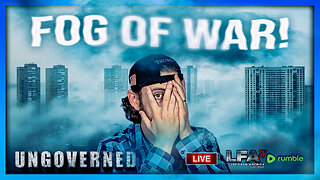 LIVE
LIVE
LFA TV
12 hours agoLFA TV ALL DAY STREAM - WEDNESDAY 6/18/25
3,928 watching -
 LIVE
LIVE
FyrBorne
13 hours ago🔴Warzone Sniping: The Fight Vs Cheaters Continues (Where is Ricochet?)
53 watching -
 1:10:47
1:10:47
Game On!
15 hours ago $1.85 earnedThe Florida Panthers Are BACK TO BACK Champs! Florida Is Hockey!
55.1K2 -
 4:02:27
4:02:27
The Bubba Army
1 day agoWNBA NO. 1 TARGET - Bubba the Love Sponge® Show | 6/18/25
31.7K5 -

FusedAegisTV
2 hours agoDonkey Kong Bananza Nintendo Direct! REACTION 6.18.2025 | FusedAegis Presents
5.13K1 -
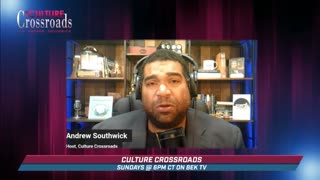 2:01:25
2:01:25
BEK TV
3 hours agoTrent Loos in the Morning 6/18/2025
15.8K -
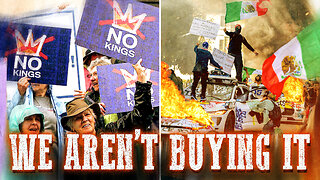 1:25:27
1:25:27
Nick Freitas
16 hours agoThe Utter Hypocrisy of “No Kings”
72.3K35 -
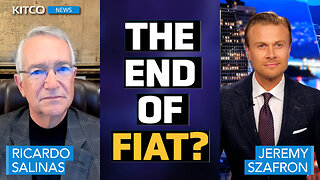 36:48
36:48
Kitco NEWS
15 hours agoEnd of Fiat Has Begun as Bitcoin and Gold Take Center Stage Says Billionaire Ricardo Salinas
39.3K16 -
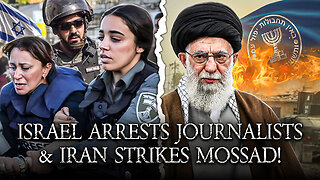 9:10:27
9:10:27
MyronGainesX
1 day ago $16.99 earnedIran Strikes Mossad, Zionist Debate On X, Diddy Trial, Antonio Brown Wanted For Attempted Murder!
80.2K78 -
 31:45
31:45
Uncommon Sense In Current Times
17 hours ago $0.60 earnedThe Fatherless Crisis in America | Healing Homes & Breaking Cycles Through Faith | Sean Teis
25.1K9